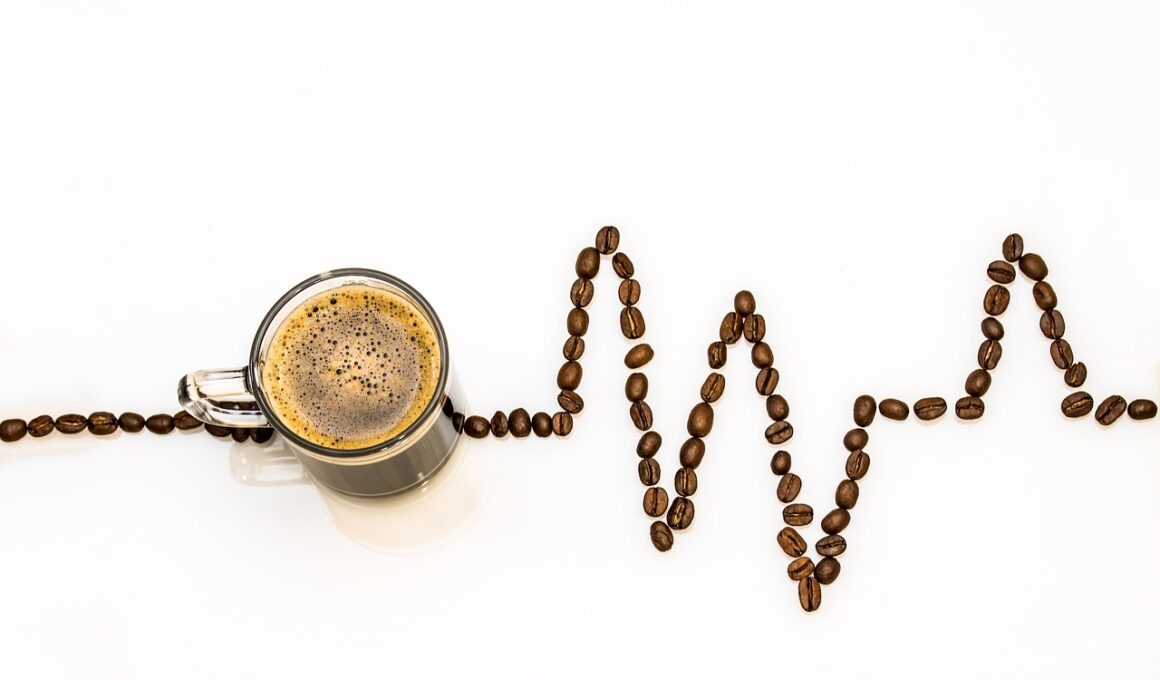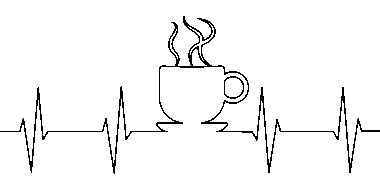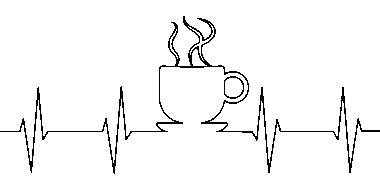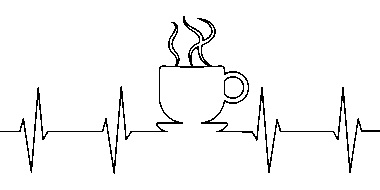Caffeine, Hormones, and Aging: What You Should Know
Caffeine is one of the most popular stimulants consumed worldwide, often found in coffee, tea, energy drinks, and chocolate. While it helps in enhancing alertness and reducing fatigue, the impact of caffeine on hormonal health is an essential aspect to consider, especially as we age. Both endocrine and metabolic pathways are influenced by caffeine’s consumption, altering cortisol, insulin, and even sex hormones. Understanding the balance of these hormones is crucial for maintaining physical and mental well-being. Caffeine’s role in increasing adrenaline levels can lead to heightened alertness, but can also result in an imbalance of cortisol—our stress hormone. With aging, the body processes caffeine differently; liver function declines which means caffeine can stay in the system longer, exacerbating its effects. Ultimately, moderation is key. It is advisable to monitor how your body responds to caffeine as you age. This awareness can lead to better hormonal regulation of energy and mood. Find balance for optimal health outcomes, enhancing quality of life. Incorporating this knowledge into daily habits can significantly improve hormonal health.
After understanding the broader implications of caffeine on hormones, it’s essential to delve deeper into its effects on specific hormones. Caffeine has been shown to influence cortisol levels significantly. For instance, when consumed in the morning, it can elevate cortisol levels, rendering beneficial effects if aligned with natural circadian rhythms. However, excessive consumption, especially later in the day, can lead to elevated cortisol, contributing to stress and potential health risks. Chronic high cortisol levels can impair metabolic functions and promote conditions like anxiety or insomnia. Caffeine can also impact insulin sensitivity, which is crucial for maintaining blood sugar levels, especially as we age. This sensitivity tends to decline, increasing the risk of Type 2 diabetes. People are advised to limit caffeine if they notice adverse effects such as jitteriness or disrupted sleep patterns. Therefore, understanding how caffeine interacts with these hormones can bring about informed choices regarding consumption timing and amounts, ultimately leading to better hormonal balance. Monitoring how caffeine fits into personal health regimens is imperative for effective aging and wellness. This careful consideration can significantly enhance overall hormonal health.
The Role of Caffeine in Hormonal Health
A fascinating aspect of caffeine is its influence on neurotransmitters. Caffeine enhances dopamine and serotonin levels, providing mood-lifting effects essential for mental well-being. However, the balance is delicate. Too much caffeine can lead to anxiety, irritability, and even dependency, which can interfere with mood regulation. As we age, neurotransmitter levels naturally decline, so the interplay of caffeine and these chemicals becomes more critical. Additionally, excessive caffeine intake can affect progesterone and estrogen levels in women, particularly premenopausal and menopausal women, disrupting their hormonal balance. Research indicates that moderate caffeine intake may even reduce the risk of certain diseases in older adults, including cognitive decline. This protective effect may arise from the antioxidant properties of caffeine, contributing to neuroprotection. Therefore, it’s vital for aging adults to find a balance that capitalizes on caffeine’s benefits while minimizing adverse effects. In conclusion, moderation with awareness about individual health conditions and hormone levels becomes paramount for maintaining hormonal health as we advance in age.
Looking at specific populations, the elderly show varied responses to caffeine. While it may enhance cognitive function temporarily, excessive caffeine can lead to adverse effects like agitation or insomnia. This demographic often experiences altered metabolism and slower drug clearance, crucial factors for overall health. Therefore, it is essential to tailor caffeine consumption to individual needs and health conditions. On the other hand, regular consumption of caffeine may offer protective effects against neurological disorders such as Alzheimer’s and Parkinson’s diseases due to its impact on neuroprotection and reduced inflammation. Caffeine promotes brain health, potentially delaying aging-related cognitive decline. Elders should consult healthcare providers about their caffeine intake, especially if they have existing hormonal or metabolic issues. Adjusting the timing, source, and quantity of caffeine could result in significant improvements in well-being among older adults. In addition, the enjoyment of caffeinated beverages can enhance social interactions, further contributing to holistic hormonal health. Therefore, integrating caffeine as a thoughtful component of daily life can yield both physical and social benefits. Ultimately, harmony in consumption leads to aging gracefully.
Balancing Caffeine Consumption
Balancing caffeine consumption is crucial for optimizing hormonal health, particularly as we age. Finding the right amount of caffeine can be challenging due to individual differences in sensitivity and metabolism. General recommendations suggest limiting intake to moderate levels, such as 400 mg daily, roughly equivalent to four 8-ounce cups of coffee. Track your body’s reactions post-consumption to identify optimal intake levels. Some individuals may thrive on lower amounts while others manage well with higher doses. Timing is equally essential; consuming caffeine too late in the day can disrupt sleep patterns, impacting cortisol levels and emotional health. Incorporating more hydrating options like herbal teas can offer soothing effects without the jittery impact of caffeine. These choices support hormonal balance throughout the day. Moreover, coupling caffeine with other nutrients, including protein or healthy fats, can modulate its effects, providing sustained energy without spikes in hormone levels. Therefore, mindfulness in caffeine use can yield positive outcomes not just in hormonal health but also in enhancing overall vitality, contributing to a vibrant quality of life. Creating a personal strategy around caffeine consumption aligns health goals with daily routines.
The societal and cultural aspects of caffeine consumption also play a role in how we perceive and integrate it into our lifestyles. Many cultures uphold coffee and tea rituals, emphasizing not just caffeine’s stimulating effects but also the social bonding aspects. As people age, maintaining social connections is vital for mental health, and enjoying a cup of coffee or tea with friends can foster these relationships. Furthermore, the ritual of preparing and enjoying a drink signals self-care and relaxation, thus contributing positively to hormonal balance. This sociocultural context elevates caffeine consumption beyond mere substance use; it becomes a tool for community and connection. Embracing caffeine as part of a lifestyle that values health, wellness, and social interactions can greatly enhance the aging experience. However, it’s important to remember that while caffeine can be a healthy part of your life, balance is vital as its effects can vary widely. Therefore, enjoy caffeine as a delightful aspect of daily life while staying tuned to individual health conditions and needs. Mindful consumption integrated with social interaction promotes a wholesome approach to aging gracefully.
Conclusion: Caffeine and Aging Gracefully
In conclusion, understanding the impact of caffeine on hormones is vital for individuals looking to maintain health as they age. The relationship between caffeine and hormones, particularly cortisol, insulin, and neurotransmitters, indicates how important mindful consumption is. Moderation, awareness of individual responses, and timing can lead to better overall health outcomes, influencing both physical and mental well-being. Additionally, considering the enjoyment and social aspects of caffeine can enrich everyday experiences, contributing positively to hormonal balance. It is also imperative to consult healthcare professionals for personal recommendations, particularly for older adults with unique health conditions. The knowledge gained about caffeine can empower individuals to make more informed decisions. As we embrace the later stages of life, managing caffeine consumption becomes a crucial factor of hormonal health. Achieving balance promotes not just longevity but quality of life, enabling individuals to age gracefully. Ultimately, by integrating these insights, enhancing one’s daily routine becomes possible—offering renewed vitality and resilience. Enjoying caffeine within a framework of moderation will support a fulfilling, healthy, and balanced approach to aging.
As caffeine continues to draw interest from health enthusiasts and researchers alike, ongoing studies will likely yield more insights. Research is crucial for uncovering the connections between caffeine and various hormonal responses. These insights can empower individuals with knowledge about how they may optimize their diets, integrating caffeine beneficially into their everyday lives. The evolving understanding of caffeine offers an opportunity to examine its advantages and drawbacks more robustly. Furthermore, considering personal preferences and cultural influences can guide healthier choices, enhancing how caffeine is used in daily routines. The intersection of caffeine consumption and hormonal health presents an exciting frontier in lifestyle medicine, emphasizing the need for awareness and moderation. Whether one enjoys a comforting cup of coffee or a refreshing green tea, it’s clear that how we incorporate caffeine shapes our overall health. A thoughtful approach fosters improved hormonal balance, physical well-being, and mental clarity. Thus, the continued exploration of caffeine’s role in hormonal health remains crucial for individuals of all ages. As more data emerges, it will pave the way for future recommendations for caffeine intake during the aging process.





